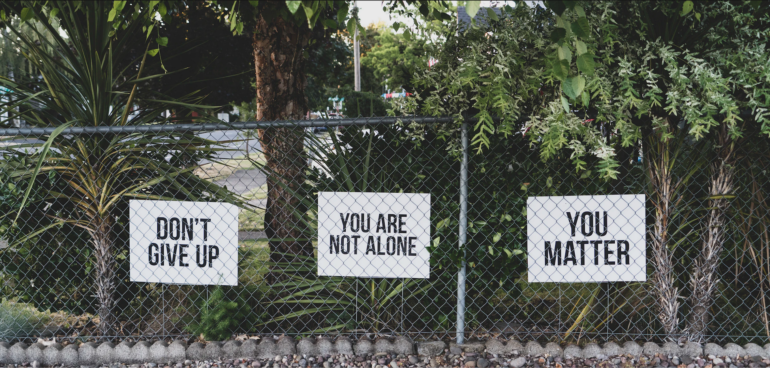
How Makom Is Helping Ex-Hasidic Members Who Were Suicidal
In the last several weeks, there have been three suicides in Israel in the ex-Hasidic community. While I don’t know the particulars around these tragedies, I unfortunately, have learned a few things about suicidal ex-Hasidim in the last few years, due to our work with the members of Makom.
I am proud to say that people who have come to us suicidal or having made suicide attempts, have found healing at Makom. We are not a mental health organization, and I do not assume that what we have seen applies to every case out there, but I believe the principles we have learned and established could help many who are struggling similarly, and I hope that the community takes note.
- Judaism doesn’t matter when someone is facing a life and death situation. People more easily understand this when there is a physical danger, that the concept of pikuach nefesh applies. For many of the people we see, there is so much trauma and abuse tied into their experience with mitzvos, that the act of doing them is painful enough that it breaks them. After having consulted with several rabbis, our position at Makom is clear: you have to be a mentsch before you can be a yid. If a person can’t be a whole person, if the act of observing Halacha is deeply painful, our first priority must be for the person to heal as a human being.
- A person struggling with suicidal thoughts often feels less than. They don’t believe they are good enough, that they matter, that they are lovable. It is essential that a person struggling like this is met with unconditional love. In many cases at Makom, members did not get this love at home. With our incredible and dedicated staff and the amazing volunteers who host our members for shabbos, our members feel a warmth and love that is not conditioned on how much or how little they observe. They know that we value them for them and that our relationship is not dependent upon how many mitzvos they perform. They have the comfort of knowing that if they choose to never observe again or not observe the way we do, the relationship will not suffer. And that is because…
- We don’t judge. We do not know the struggles our members went through and our going through. We don’t believe it is our place to sit and evaluate their spiritual standing. They come to us as a safe place to explore Orthodox Jews and Judaism, but what they choose to do with that information is up to them.
- We believe in using the most highly recommended mental health professionals out there and that bad therapists can do more harm than good. While medication may go hand in hand with other forms of therapy, it is not a substitute for doing the work with a mental health professional when a person has experienced trauma, and medication can and should only be prescribed by a qualified physician.
- Modeling happy and healthy marriages, parent-child interactions and Jewish observance can be incredibly healing. So many of our members never saw these things exist without dysfunction. To watch it and experience it, again and again through our shabbos placements is reparative.
- Sometimes families can be chosen. While many of our members come from family situations that are strained, either because they were disowned due to their differing path or because their parents were not and are not able to meet their needs, our members have found family in each other. They can lean on one another and carry one another when times get tough.
- While so many of our members come to us with a dysfunctional relationship with God, as they only associate Hashem with terror, guilt and punishment, by healing in the aforementioned ways, many of them can find a healing in their relationship with God. When they can meet loving “parents” in this world and start to heal their relationship to themselves then God can be another source of hope and comfort for them.
If you found this content meaningful and want to help further our mission through our Keter, Makom, and Tikun branches, please consider becoming a Change Maker today.








1 comment
Sort by
This is very good .